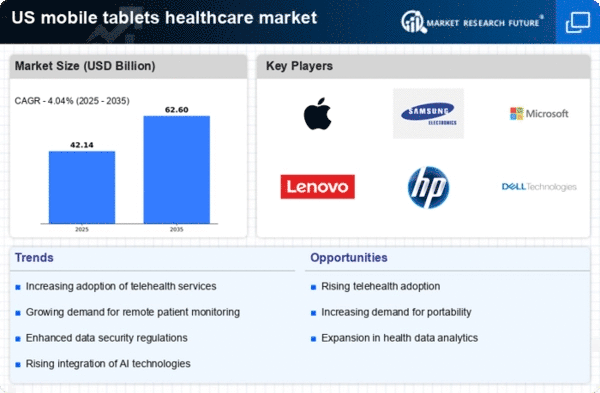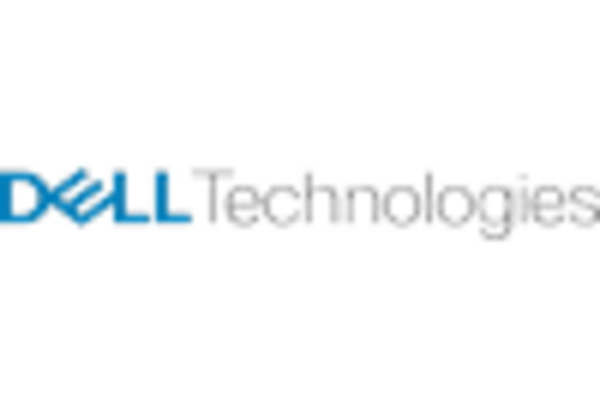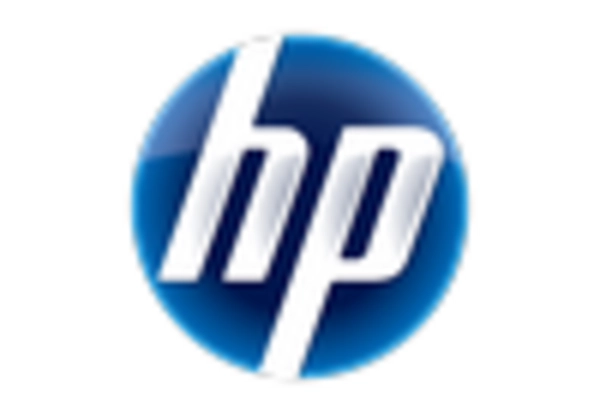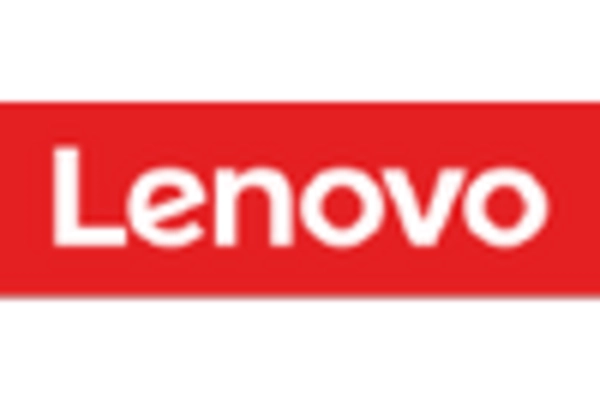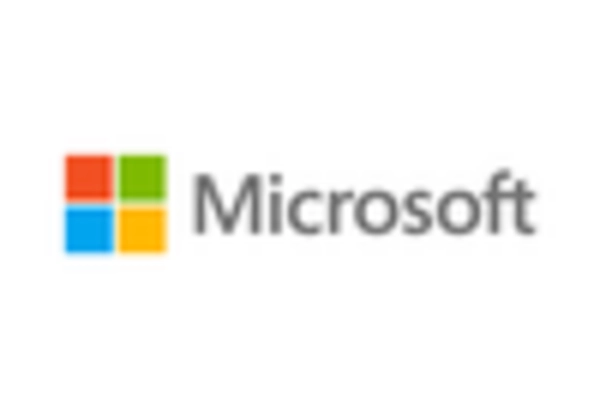Advancements in Mobile Technology
Technological advancements in mobile devices are significantly influencing the mobile tablets-healthcare market. The introduction of high-performance tablets with enhanced processing capabilities, improved battery life, and advanced display technologies is enabling healthcare professionals to utilize these devices more effectively. For instance, the integration of high-resolution cameras and biometric sensors allows for better patient assessments and diagnostics. As of 2025, it is estimated that over 50% of healthcare providers in the US utilize mobile tablets equipped with cutting-edge technology. This trend suggests that ongoing innovations will continue to propel the mobile tablets-healthcare market forward, as healthcare providers seek to leverage these advancements for improved patient care.
Increased Focus on Patient-Centric Care
The shift towards patient-centric care is a driving force in the mobile tablets-healthcare market. Healthcare providers are increasingly prioritizing patient engagement and satisfaction, which necessitates the use of mobile tablets for effective communication and information sharing. Studies indicate that 70% of patients prefer using mobile devices for accessing health information and managing appointments. This preference is prompting healthcare organizations to invest in mobile tablet solutions that enhance the patient experience. By facilitating easy access to medical records and treatment plans, mobile tablets are likely to play a crucial role in fostering a more patient-centered approach in healthcare delivery.
Rising Demand for Remote Patient Monitoring
The mobile tablets-healthcare market is experiencing a notable surge in demand for remote patient monitoring solutions. This trend is driven by the increasing need for healthcare providers to monitor patients outside traditional clinical settings. According to recent data, approximately 30% of healthcare organizations in the US have adopted mobile tablets for remote monitoring purposes. These devices facilitate real-time data collection and communication between patients and healthcare professionals, enhancing patient engagement and adherence to treatment plans. The convenience and accessibility offered by mobile tablets are likely to contribute to improved health outcomes, thereby driving further growth in the mobile tablets-healthcare market.
Growing Emphasis on Data Security and Privacy
As the mobile tablets-healthcare market expands, the emphasis on data security and privacy is becoming increasingly critical. Healthcare organizations are under pressure to protect sensitive patient information, leading to the implementation of robust security measures for mobile devices. Approximately 40% of healthcare providers in the US have reported investing in advanced security solutions for their mobile tablets. This focus on safeguarding patient data not only ensures compliance with regulations but also builds trust with patients. Consequently, the mobile tablets-healthcare market is likely to see continued growth as organizations prioritize secure and reliable mobile solutions.
Regulatory Support for Digital Health Solutions
Regulatory bodies in the US are increasingly supporting the adoption of digital health solutions, which is positively impacting the mobile tablets-healthcare market. Initiatives aimed at promoting telehealth and digital health technologies are encouraging healthcare providers to integrate mobile tablets into their practices. For example, recent legislation has expanded reimbursement policies for telehealth services, making it financially viable for providers to invest in mobile tablet solutions. This regulatory support is expected to drive growth in the mobile tablets-healthcare market, as more healthcare organizations recognize the potential benefits of adopting these technologies to enhance service delivery.


